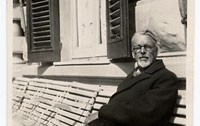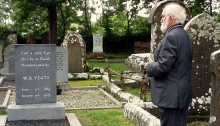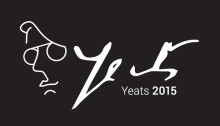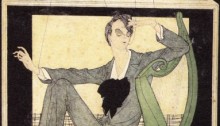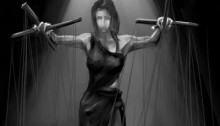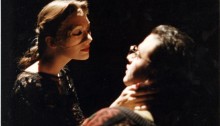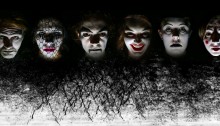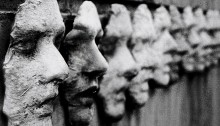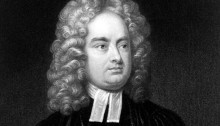As explained in my previous blog post, Yeats created an elitist, authoritarian myth of Jonathan Swift during his time spent in Fascist Italy (in the city of Rapallo). Now I am going to show you how he appropriated his reading of Swift to the Irish context and his own elitist discourse of decay. In The Words…
“This summer school can change lives”, as Margaret Mills Harper, former director of the International Yeats Summer School has put it. And she is absolutely right. This summer, I had the pleasure to spend two weeks in Yeats Country, Sligo, among the most determined Yeatsians, and I am looking forward to sharing this amazing experience…
The year 2015 has brought the winds of change in the reception of Yeats not only in Ireland but also in Europe and in the entire contemporary world. Yeats has been reborn in the occasion of his 150th birthday in 2015, and his second coming is manifested in the fine arts, musical productions, poetry and…
So far, there have been only few attempts to film or stage Yeats’s work, and I find it very interesting that Yeats’s presence in pop culture has been, in fact, restricted to some catchy, well-known lines from his major poems in the titles and scenes of certain film productions and in book titles. However, it…
In my previous posts, I mostly wrote about the advantages of being an anti-self: we have seen that people with antithetical abilities are all exceptional, talented characters, strongly connected to art and high thinking. But Yeats firmly believes that the antithetical impulse may grow a fanaticism and a terror, and may oppress the ignorant and…
The mask put on by the personaggios or the anti-selves is indispensable for their becoming dominant and, at times, downright oppressive characters. In “Per Amica,” Yeats mentions a saint, St Francis of Assisi, and a politician, Cesare Borgia, to exemplify the importance of this kind of mask: they “made themselves over-mastering, creative persons by turning from…
As mentioned in my previous post, Yeats’s concept of the self and its anti-self (the mask) means that man is, in fact, two men. It also means that they belong to different fields of life, while being strongly connected to one another—the self is stuck in ordinary life, while the anti-self appertains to the fields of…
Over the last few months, I’ve been trying to find evidence to prove that Yeats’s idea of the self and its anti-self (the mask or Daimon) bears strong relation to Pirandello’s interpretation of the distinction between the so called persona and personaggio, and this analogy is most evident in their dramas. When Yeats writes to Olivia Shakespear…
Over the last few months, my research interest has turned towards the examination of the influence of Italian Fascism and authoritarian politics on William Butler Yeats’s oeuvre. I usually discuss this topic with regard to Luigi Pirandello’s and Yeats’s theatre, but this time, I chose to explore this theme in Yeats’s reading of the eighteenth-century…
Interview with Balázs Zsuzsanna You were the one of the two winners of the Ruttkay Essay Prize this year – were you surprised at the jury’s decision? Did it come as a surprise that you won again? Why? Every competition is a new challenge with new talented competitors, so during the announcement of results, I…
